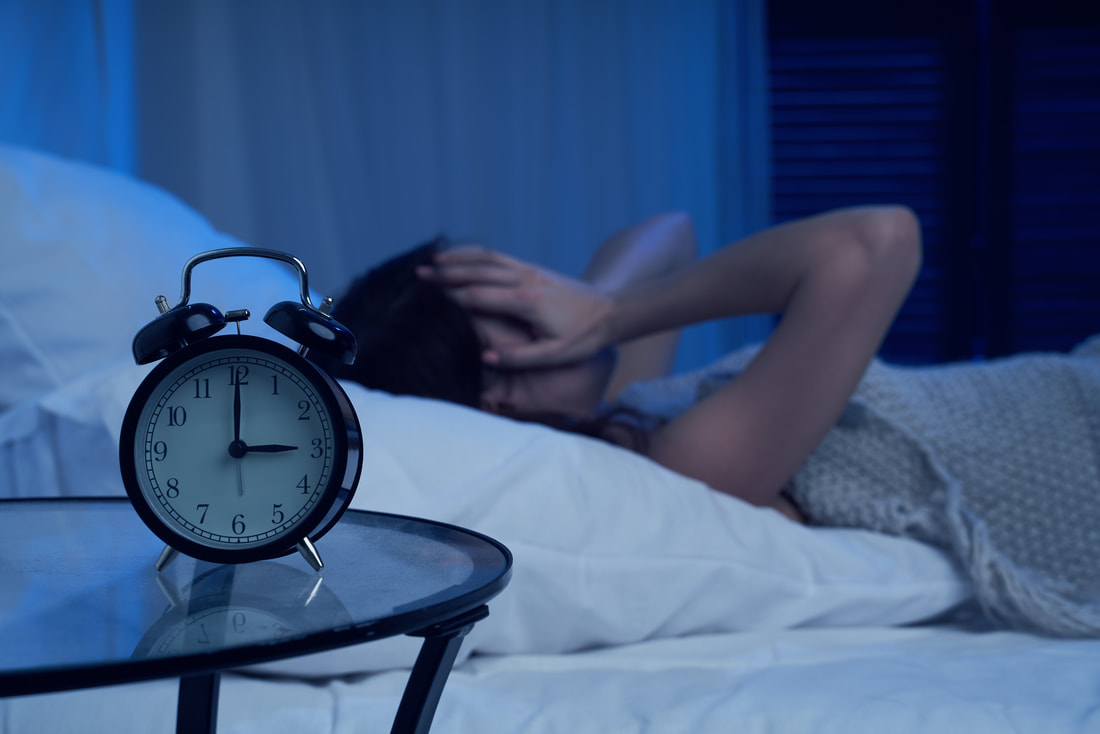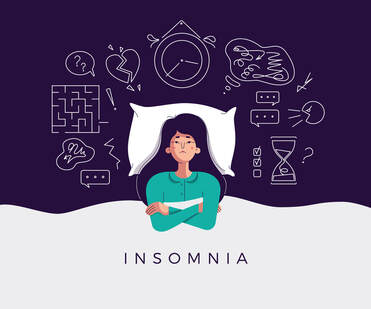Insomnia Disorder
|
If you are interested in counseling for Insomnia, call OakHeart at 630-570-0050 or 779-201-6440 or email us at [email protected]. We have counselors, psychologists, and social workers available to help you at one of our locations in North Aurora, IL, Sycamore, IL, and/or via Telehealth Online Therapy Services serving Kane County, DeKalb County, Dupage County, and beyond.
Many of us has experienced some form of insomnia in our lives and approximately 10-15% of adults experiences chronic symptoms of insomnia. Most cases of insomnia are a consequence of another medical or mental health disorder, use of substances, or due to other sleep disorders such as sleep apnea. However, a number of individuals suffer from primary insomnia, or sleep problems that are not caused by another disorder, with insomnia being the primary complaint.
What is Insomnia Disorder?Insomnia is considered as a Sleep-Wake Disorder characterized by poor sleep quantity or quality (American Psychiatric Association, 2013). Symptoms include: difficulty falling asleep, staying asleep (e.g., frequent wakings and/or difficulty falling back to sleep after waking), and/or waking up too early in the morning and then not being able to fall back asleep. These symptoms cause considerably distress and may impact an individual's functioning. For example, they may have difficulties in school, at work, in relationships, etc.
There are many consequences of insomnia (Roth, 2007) including, but not limited to: depression or anxiety, difficulty regulating emotions, decreased qualify of life, increased incidence of accidents, poor health, etc. How do you Treat Insomnia?First, it is important to determine what is contributing to symptoms of insomnia. Therefore, a thorough assessment should be completed to help inform treatment recommendations. For example, if symptoms of insomnia are determined to be primarily caused by depression, then the depression symptoms should be addressed. If symptoms of insomnia are determined to be primarily caused by a medical condition such as sleep apnea, then treatment recommendations should include a sleep study and consult with a physician.
|
When appropriate, Cognitive-Behavioral Therapy (CBT) for Insomnia can be a useful and effective intervention. CBT for Insomnia includes tracking sleep patterns and symptoms (e.g., sleep logs), psychoeducation which may include sleep hygiene training and education on biological aspects of sleep, stimulus control techniques, sleep restriction, relaxation strategies, and cognitive restructuring around unhealthy thoughts and beliefs that may interfere with sleep.
OakHeart Insomnia Counselors, Psychologists, and Social Workers
|
|
|
|
Insomnia Related Blogs:
|
The sleep cycle is comprised of 4 stages and all play a role in getting quality rest. One of the 4 stages is referred to as REM (rapid eye-movement) and the other 3 stages are part of the NREM (non-REM). Stage 1, also referred to as N1 is a very light sleep and typically lasts about 1-5 minutes. It is easy to wake a person up during this stage. Stage 2 (N2) is a deeper, more restorative sleep and lasts for approximately 10-60 minutes. During this stage, body temperature drops, muscles relax, and breathing and heart rate slow down. Stage 3 (also known as N3, Slow wave or Delta Sleep) is the deepest stage of sleep that helps consolidate memories and typically lasts for 20-40 minutes. Muscle tone, pulse, and breathing rate continue to decrease during this stage. Experts suggest that this stage is crucial for recovery and growth. Finally, REM is the 4th stage of sleep and lasts for 10-60 minutes. Much of dreaming happens during REM sleep. Research suggests that REM sleep is essential for functions such as learning and creativity (Suni, 2022)...(to read more, click on the link above).
|
|
CBT-I addresses behaviors and thinking patterns that interfere with sleep (Manber et al., 2014). In treatment, you can expect a thorough examination of your sleep patterns and habits followed by a structured and brief treatment (typically 6-8 sessions) that assists in creating new patterns. According to many studies, CBT-I is as effective as medication in the short term and more effective than medication in the long term (as cited in Muench et al., 2022). Why? Because we may become tolerant of medications but behavioral and cognitive changes can be maintained over time...(to read more, click on the link above).
|
|
Imagine this scenario. You have to be up early the next day. You head to bed, lie down, and when your head hits the pillow, you feel wide awake. Or, you’re sleeping soundly and then suddenly you wake up, look at the clock and see that it is 3:30am. Anxiety and worries about not falling back to sleep start kicking in. Once this occurs, it can be incredibly difficult to get back to sleep. Grounding exercises can be very useful for calming anxiety and promoting sleepiness. A grounding technique refers to a coping strategy that helps an individual refocus on the present moment. It is often used to help people who struggle with issues such as anxiety, PTSD, and panic attacks. The 5-4-3-2-1 technique is a grounding exercise in which an individual is guided to use their 5 senses to focus on the present moment. For example, a person may be asked to do the following:..(to read more, click on the link above).
|
Resources
References
Roth (2007). Insomnia: Definition, Prevalence, Etiology, and Consequences. Journal of Clinical Sleep Medicine, 15(3), 7-10.
American Psychiatric Association. (2013). Diagnostic and Statistical Manual of Mental Disorders (5th ed.). Washington, DC: Author.
American Psychiatric Association. (2013). Diagnostic and Statistical Manual of Mental Disorders (5th ed.). Washington, DC: Author.









